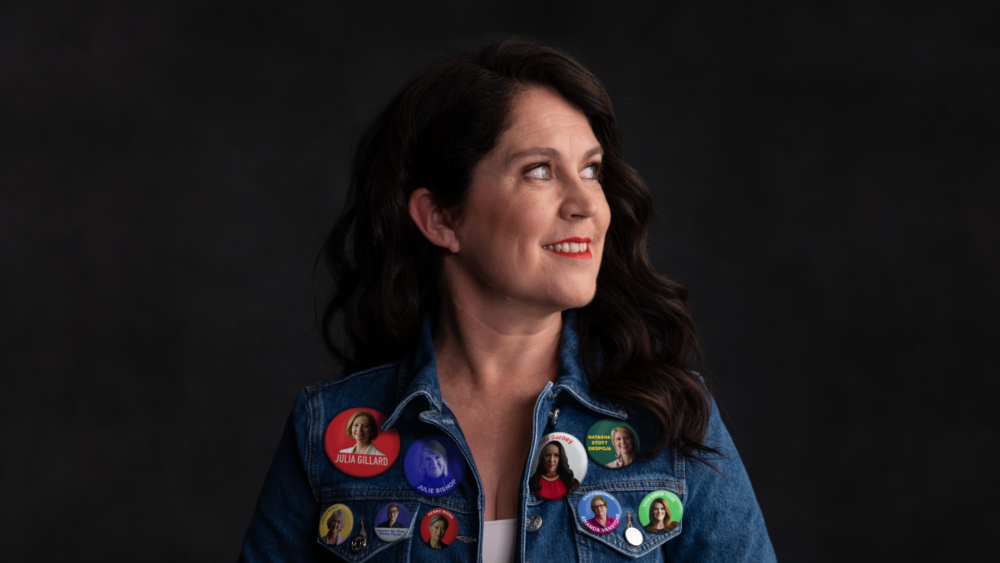“100 years of ‘firsts’: The story of women in Australian parliaments started with a blunder from an inept man with a not-quite-so-ingenious plan.”
Ebenezer Ward, an anti-women’s rights politician thought he would ‘kill the bill’ by adding the right to stand for Parliament. How wrong he was – the Bill passed 31 to 14.
With the ABC’s Ms Represented, host Annabel Crabb presents us with a very powerful and important series about women in Australian politics, one hundred years after Australia elected its very first female parliamentarian. She takes us from Votes for Women, through the years in-between, to today’s Parliament and women politicians’ experiences now.
Ms Represented begins powerfully and refreshingly with our women politicians literally rejoicing in how the women in South Australia became the most enfranchised women anywhere in the world, being granted the rights to both vote and stand for Parliament on 18 December 1894. Although Aboriginal Women were also able to vote, it was not always made easy for them to do so. We hear later how Aboriginal women (and men), amongst others, were appallingly denied voting rights in Federal elections in the Franchise Act of 1902.
Annabel cleverly interviews these leading, prominent politicians through each episode, using an extraordinary collection of vignettes to depict significant issues that arose within our Parliament over the years and how our Parliamentary women had to deal with them. All the women express very similar experiences of their time in Parliament, despite their varied political alliances. One states that Parliament has ‘the most unsafe workplace culture in the country’ without any code of conduct. It has been hard for women politicians to take a stand on the abuse of power and misogyny in Parliament, as they are expected to publicly support and defend their party’s stance. However, when leading women stay silent, the message communicated to others who are similarly suffering is to do nothing.
From the beginning, there have been four hurdles for women entering Parliament:
- excuses (no women’s toilets and none installed in WA as women in Parliament were seen as a temporary aberration – Edith Cowan! The Senate didn’t install a women’s toilet until 1974!)
- questioning women’s resilience, whether tough enough
- needing to fit the formula
- women’s experience being viewed differently to men’s (for example Joan Pilone – an experienced local politician versus John Howard – an inexperienced accountant)
Undoubtedly we need “the best person for the job”, and they insist it is decided on merit, but were all the male politicians really selected on merit? Amanda Vanstone expressed her strong opinion on this!
The question of gender quotas has been endlessly debated:
- this was managed well by Labor, though it was hard fought
- however, the Liberal party is against gender quotas, despite Menzies pioneering affirmative action when bringing anti-Labor groups together in forming the Liberal Party.
Different standards are applied when reporting on women in politics, especially when the woman in question is Julia Gillard. She was judged on appearance rather than policy or the economy and ‘one image brought the suggestion that she wasn’t fit to serve.’
Women as change agents is not seen as the norm however, as Annabel shows, Australia has had many such women.
Annabel, WOW and thank you, you’ve done it again, and this time with a real BOOM. The timing of this series is highly relevant and appropriate for all Australian women, in this year and even this month.
I say this because our Federal Parliament’s unregulated workplace culture has been exposed and shown to be dangerous; both older and current women politicians have spoken out; Brittany Higgins’ spoke of her experience; the Women of Australia (plus many men) Marched saying #Enough! But what has happened? – It appears to be very little or NOTHING. So, regretfully, Annabel’s message is indeed timely.
Watch the whole Ms Represented series on iview.
- Gillian Lewis, SA State Representative on BPW Australia Board and former senior government policy writer, is a passionate campaigner for gender equity and anti-men’s violence against women




